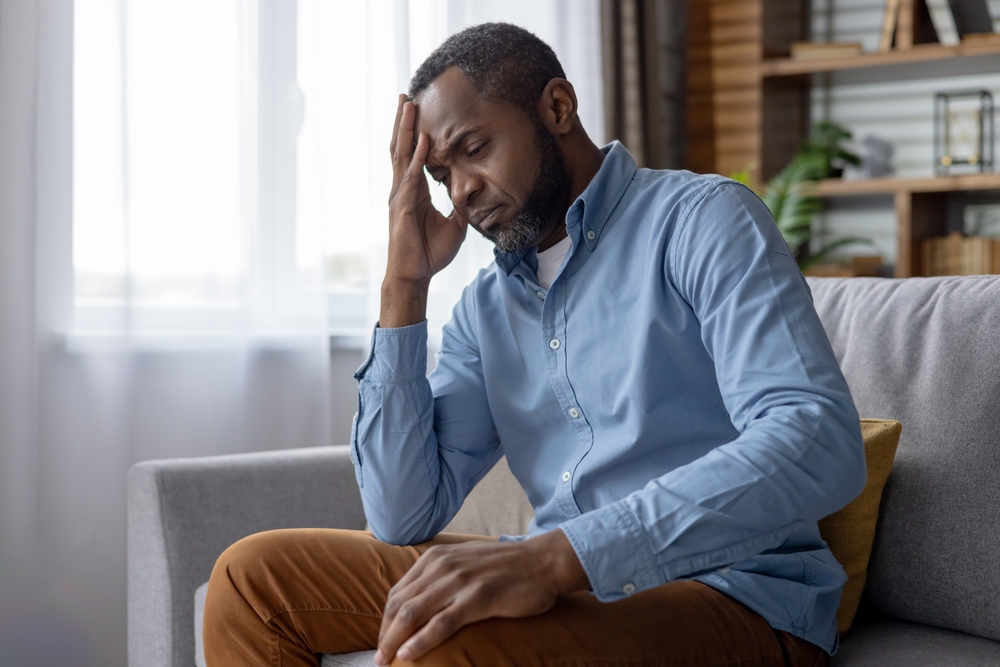Stress has long been associated with many health issues, but one of the most visible signs of its impact can be found on your head — premature graying of hair. Many people attribute those first gray strands to aging, but stress can accelerate the process in surprising ways. While everyone experiences some degree of graying as they age, the appearance of gray hair in younger individuals is often due to environmental factors, and stress is one of the leading contributors.
Understanding the biology of hair color
To understand how stress leads to premature graying, it’s important to know the basics of hair pigmentation. Hair gets its color from melanin — a pigment produced by specialized cells called melanocytes. These cells reside in the hair follicles, and each time a new hair grows, melanocytes inject melanin into the hair shaft, determining its color.
There are two types of melanin: eumelanin (which produces brown or black hair) and pheomelanin (which results in red or blond hair). The mix of these pigments determines the shade of each person’s hair. Over time, the production of melanin slows down, and this is why people’s hair naturally turns gray or white as they age.
How stress disrupts melanin production
Chronic stress can disrupt the body’s natural balance, causing a range of health problems, including premature graying. Stress affects melanocytes by producing an overabundance of norepinephrine — a neurotransmitter that’s part of the body’s “fight or flight” response. When the body is under stress, norepinephrine is released in larger quantities, which can harm melanocyte cells in the hair follicles.
Over time, if these cells are damaged or depleted, they lose their ability to produce melanin. This leaves the hair without pigment, causing it to turn gray. In cases of prolonged or extreme stress, this process can happen much faster than it would naturally, which is why younger individuals may notice gray hairs earlier in life.
Subtle emotional triggers and the effects of stress
Stress does more than just affect your physical health — it takes an emotional toll as well. Many people experiencing high levels of stress notice changes in their emotional well-being, which can exacerbate the graying process. For example, the anxiety or sleeplessness that often accompanies stress can interfere with the body’s ability to repair itself, including the regeneration of cells like melanocytes.
The emotional burden of stress might also lead individuals to neglect self-care routines, which can further contribute to premature graying. Skipping healthy habits like proper nutrition, rest and stress management worsens the body’s response to stress, leading to more gray hairs.
Genetics vs. stress
While genetics play a major role in determining when your hair turns gray, stress can speed up the process significantly. Some people are genetically predisposed to gray early due to the age at which their melanocytes begin to slow melanin production. However, studies have shown that stress can trigger this process prematurely, regardless of a person’s genetic predisposition.
For example, two people with the same genetic makeup might start graying at different times based on how much stress they experience. One may develop gray hair in their 30s due to a high-stress lifestyle, while the other may not see gray strands until their 50s, thanks to a more balanced, lower-stress life.
Emotional and psychological consequences of early graying
For many individuals, discovering gray hair at a young age can feel like a blow to their self-esteem. Hair is closely tied to personal identity and perception, so premature graying can lead to feelings of insecurity, anxiety or even depression. These emotional responses can create a vicious cycle — stress causes premature graying, and then the presence of gray hair itself can contribute to further stress.
Emotional reactions to gray hair are often amplified by societal pressures and beauty standards. In a world that equates youth with beauty, the appearance of gray hair can feel like an unwanted sign of aging, even if it’s unrelated to a person’s chronological age. These emotional triggers can cause further stress, perpetuating the cycle of premature graying.
Stress management to protect your hair’s color
The good news is that managing stress effectively can slow down or prevent premature graying. Here are some stress management techniques that can help:
- Mindfulness and meditation: Practices like mindfulness and meditation have been proven to reduce stress by calming the mind and helping individuals focus on the present moment. Taking even a few minutes each day to breathe deeply and relax can have a significant impact on stress levels.
- Regular exercise: Physical activity is a natural stress reliever. Exercise promotes the release of endorphins — chemicals in the brain that act as natural mood elevators. Regular exercise can help maintain emotional well-being and, in turn, slow down stress-induced graying.
- Balanced diet: Proper nutrition is essential for maintaining healthy hair. Certain vitamins and minerals — such as B vitamins, iron and antioxidants — are known to support hair health and melanin production. Eating a balanced diet rich in fruits, vegetables and whole grains can reduce the effects of stress on your body, including your hair.
- Rest and sleep: Sleep is the body’s natural way of recovering from the stresses of the day. Lack of sleep can accelerate aging processes, including premature graying. Prioritizing quality rest allows the body to repair itself and reduces the impact of stress on hair follicles.
- Stress reduction techniques: Engage in hobbies or activities that promote relaxation, such as yoga, reading or spending time with loved ones. Finding joy and relaxation in daily life can counteract the harmful effects of chronic stress on the body.
The lasting impact of stress on your hair
Stress is an inevitable part of life, but it doesn’t have to take a toll on your hair. By recognizing the connection between stress and premature graying, you can take steps to reduce stress and protect your hair’s natural color for longer. While genetics may set the stage for when your hair turns gray, stress management plays a critical role in delaying the process.
Incorporating daily habits that prioritize relaxation, emotional well-being and self-care can slow the physical effects of stress. Your hair, like the rest of your body, benefits from a lifestyle that values balance and calm. Though gray hair is a natural part of life, there’s no need to rush the process — especially when you can manage stress in healthy, effective ways.
In the end, it’s not just about the color of your hair but about how you feel inside. Taking control of your stress can lead to a healthier, more vibrant life — gray strands or not.
This story was created using AI technology.

















